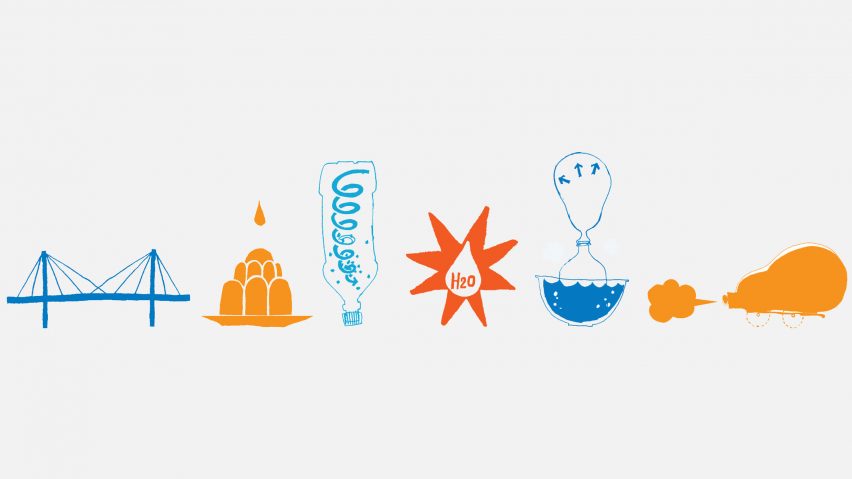Dyson has created 44 engineering and science activities for children to try out while at home during the coronavirus pandemic, from making a balloon-powered car to building a bridge from spaghetti.
Following the closure of schools across the globe due to Covid-19, designers from the James Dyson Foundation have come up with a series of challenges to help kids learn at home during isolation.
Comprised of 22 science tasks and 22 engineering activities, the Challenge Cards can be completed by children using common household items such as eggs, string and balloons.
Suited for kids aged seven and above, each challenge comes with a brief, a method, a list of materials needed, a top tip on how to complete it, and a scientific explanation of how it works.
Tasks include making an egg fit into a bottle without breaking it, creating a colourful underwater volcano and skewering a balloon without popping it.
Children can also try making and racing a balloon-powered car using just a balloon, a plastic cup, straws, thread and rubber bands to provide a good example of Newton's Third Law.
To make the car, cut the cup in half lengthways using scissors to create the car body, then poke two sets of holes through the cup using a pencil – one set near the top and the other near the bottom – and another hole through the bottom of the cup.
The James Dyson Foundation has also created some video tutorials
Then insert a straw through each set of holes, before sliding the cotton reels onto each end of the straws to make wheels, and wrapping a rubber band around the end of each straw to secure the wheels.
Next, push the neck of the balloon through the hole in the bottom of the cup, leaving it lying inside the cup, while making sure the hole is big enough to let the air out. The blow up the balloon, place on a hard surface and release to see it travel.
Other challenges include constructing a free-standing bridge from dried spaghetti that's strong enough to hold a 250 gram bag of sugar.
The Dyson engineers advise bracing strands together for extra strength, suggesting that shapes like triangles are particularly strong, and recommend using rubber bands to create good junctions.
Children can also watch a video showing Dyson engineers attempting the task with a spaghetti replica of the Golden Gate Bridge in San Francisco.
Dyson engineers attempted the bridge challenge
These types of demonstrative Youtube videos are available for several of the challenges to show children and their parents how the tasks can be carried out.
The Challenge Cards can be downloaded via the James Dyson Foundation's website.
The foundation also encourages children and their parents to share photos of their creations or videos of them completing the challenges on social media using the hashtag #JDFChallenge.
By tagging @Dyson and @Jamesdysonfoundation, the institutions can also share this content for others to see.
Keeping children entertained in lockdown is not the only way that Dyson has provided help during the coronavirus lockdown.
The British technology company also designed a ventilator in just 10 days to help meet the demand caused by the Covid-19 pandemic, and plans to produce 15,000 units in the coming weeks.
Named CoVent, the ventilator was developed after Prime Minister Boris Johnson contacted several manufacturers to help bolster the National Health Service's supply of ventilators.

